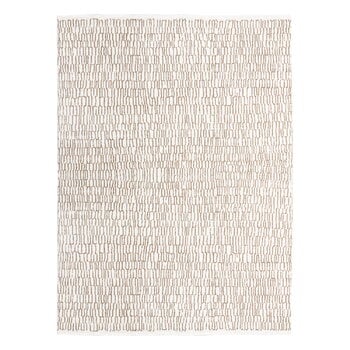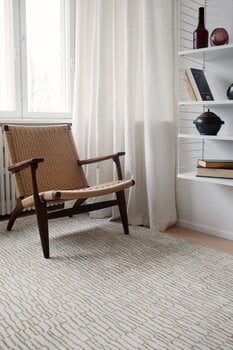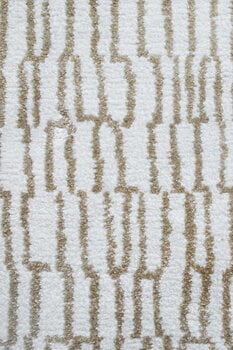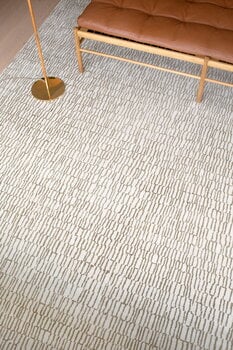
Ulla Koskinen is a Finnish designer who has studied textile and clothing design at the University of Art and Design Helsinki. Ulla Koskinen is a creative force behind the Woodnotes Design Team. In addition to Woodnotes, she has worked with numerous Finnish companies including Artek, Durat, Kannustalo and Marimekko.
In addition she works also with private clients and smaller organizations. For Woodnotes Ulla Koskinen has designed taut, precise, straight-edged benches upholstered in sand fabric. The loungers My and Roo, which won the 2009 Interior Innovation Award in Cologne, are also her design. Koskinen explains that she designs interiors to express individual character without relying on any specific signature style. She seeks the internal rhythm of a space, its full range of functions, from activity to relaxation.
View all products Read more














